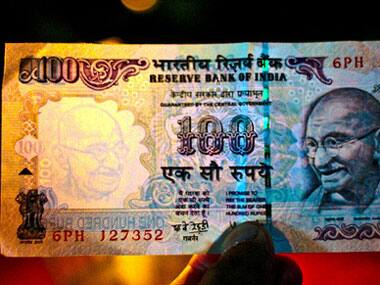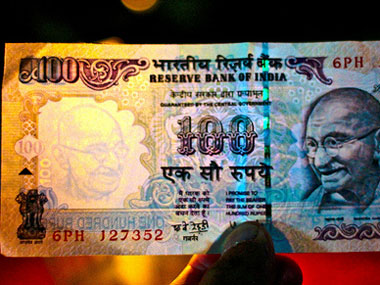With the rupee dipping to a one-month low, the headless chicken have come out squawking again, pleading for the RBI to intervene to shore up the Indian currency.
Evidently, they haven’t learnt the lesson from 2011, when the rupee fell by 2011 because of heightened risk aversion in global currency markets, but retraced some of those losses earlier this year on the back of strong portfolio inflows, and a revival of the risk-on trade.
Every step of the way, as the rupee fell last year, the interventionists bayed for the RBI to step in and support the currency. Firstpost had argued then ( here and here and here ) that it was a bad idea, and that the hysteria and the hype over the rupee’s fall was clearly overdone.
But ours was clearly a voice in a minority - as most of the comments that they generated showed. One particular commentator , evidently a currency trader, posted seven comments within the space of a few minute, flaming us. He evidently expected the rupee to go all the way to 59-to-the-dollar in a few weeks, and must have booked heavy losses.
[caption id=“attachment_234567” align=“alignleft” width=“380” caption=“There’s a truckload of ‘smart money’ waiting on the sidelines, which will help check the rupee’s fall if it overshoots. Nicocrisisafulli/Flickr”]
 [/caption]
[/caption]
But ‘smart money’ was way more smarter than these headless chicken: investors started buying the rupee when it was trading at 53-to-the dollar. Jim Walker, who heads Asianomics, told Firstpost how he helped his clients make a killing by trading on the rupee when it went into free fall last year.
“When the rupee went to 53-to-the-dollar, our recommendation to clients was to buy the rupee, and the Indian stock market. We asked client to buy India exchange traded funds (ETFs) which are priced in US dollars, so they were buying the Indian stock market, but priced in US dollars.”
Walker explains that his recommendation was more of a currency play than a stock market play. It was backed by a conviction that the rupee was oversold: he wasn’t taking a call on the stock market, where the Sensex was trading around the 16,000 mark at that time. But as it turned out, the rupee went from 53 to just over 48, and the stock market recovered as well. “So we got a double whammy on the upside,” he recalls.
Two weeks ago, Walker advised his clients to take their 20 percent profits - within a matter of two months - off the table. In his estimation, the fair value of the rupee is between 47 and 49, which means there isn’t much of an upside. “But if the rupee were to weaken again to 51-to-the-dollar, we will be buying again,” he adds.
In other words, ‘smart money’ investors helped fix the rupee’s fall last year, when it was oversold. The RBI intervened only peripherally to tame the volatility, and freed up interest rates for NRI deposits, which brought in some healthy inflows.
This time too, although the interventionists are already calling for the RBI to step in, it makes little sense for the RBI to use up its limited ammunition. There’s a truckload of ‘smart money’ waiting on the sidelines, which will help check the rupee’s fall if it overshoots.
This time, however, there is one caveat. The interest rate environment in developed economies is a little different from what it was even three months ago. Interest rates in the US, where the economy is on the slow-mend, are expected to move up in a year or so; when that happens, moneybags will begin moving their cash hoard to the US, which means that emerging markets like India won’t see the same kind of portfolio inflows as they did for the past three months.
To that extent, the rupee could weaken in the medium term - unless India itself begins to get its act together and clean up its financials, which are under great stress. That’s something that the government should address, and is long overdue. Calling for the RBI to intervene by using up its dollar holdings isn’t exactly a smart move.
Venky Vembu attained his first Fifteen Minutes of Fame in 1984, on the threshold of his career, when paparazzi pictures of him with Maneka Gandhi were splashed in the world media under the mischievous tag ‘International Affairs’. But that’s a story he’s saving up for his memoirs… Over 25 years, Venky worked in The Indian Express, Frontline newsmagazine, Outlook Money and DNA, before joining FirstPost ahead of its launch. Additionally, he has been published, at various times, in, among other publications, The Times of India, Hindustan Times, Outlook, and Outlook Traveller.
)